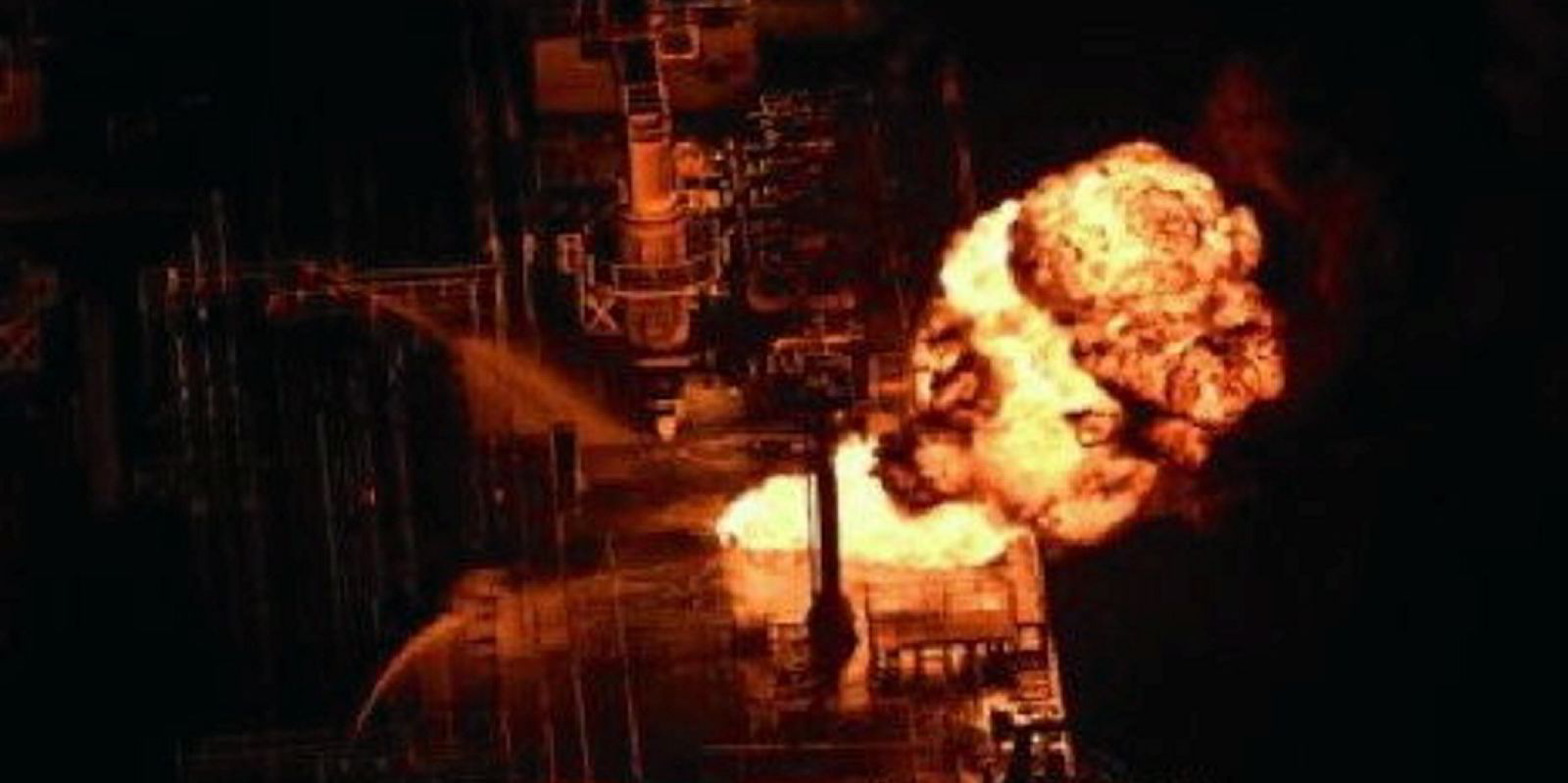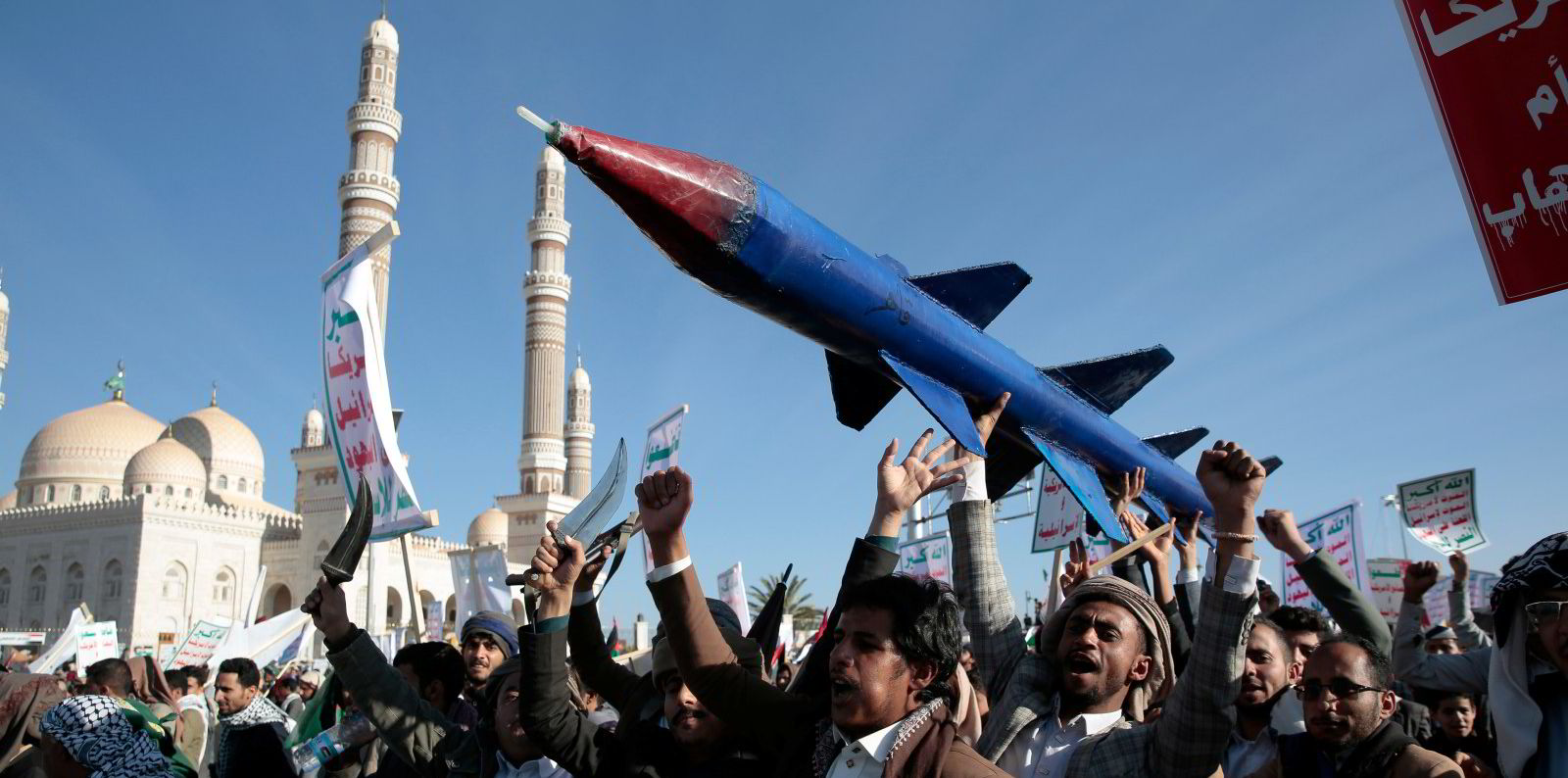The first images have emerged of a dramatic fire on a tanker, owned by investors connected to US banking giant JP Morgan, which was hit by a Houthi missile on Friday.
The ship’s crew had been battling the blaze since the attack and have now successfully extinguished the fire, the vessel’s operator has confirmed.
Houthi rebels claimed the strike on the 110,000-dwt Marlin Luanda (built 2018) on Friday, referring to it as a “British oil tanker”.
As TradeWinds has previously reported, the ship is on charter to Trafigura and carrying a cargo of Russian-origin naphtha purchased below the price cap in line with the existing sanctions regime.
The pictures were released by the Indian Navy, which sent a guided missile destroyer to the scene to assist with emergency response.
It circulated the pictures shortly before Trafigura confirmed the fire on board the ship had been fully extinguished.
“The vessel is now sailing towards a safe harbour. The crew continues to monitor the vessel and cargo closely,” Trafigura said.
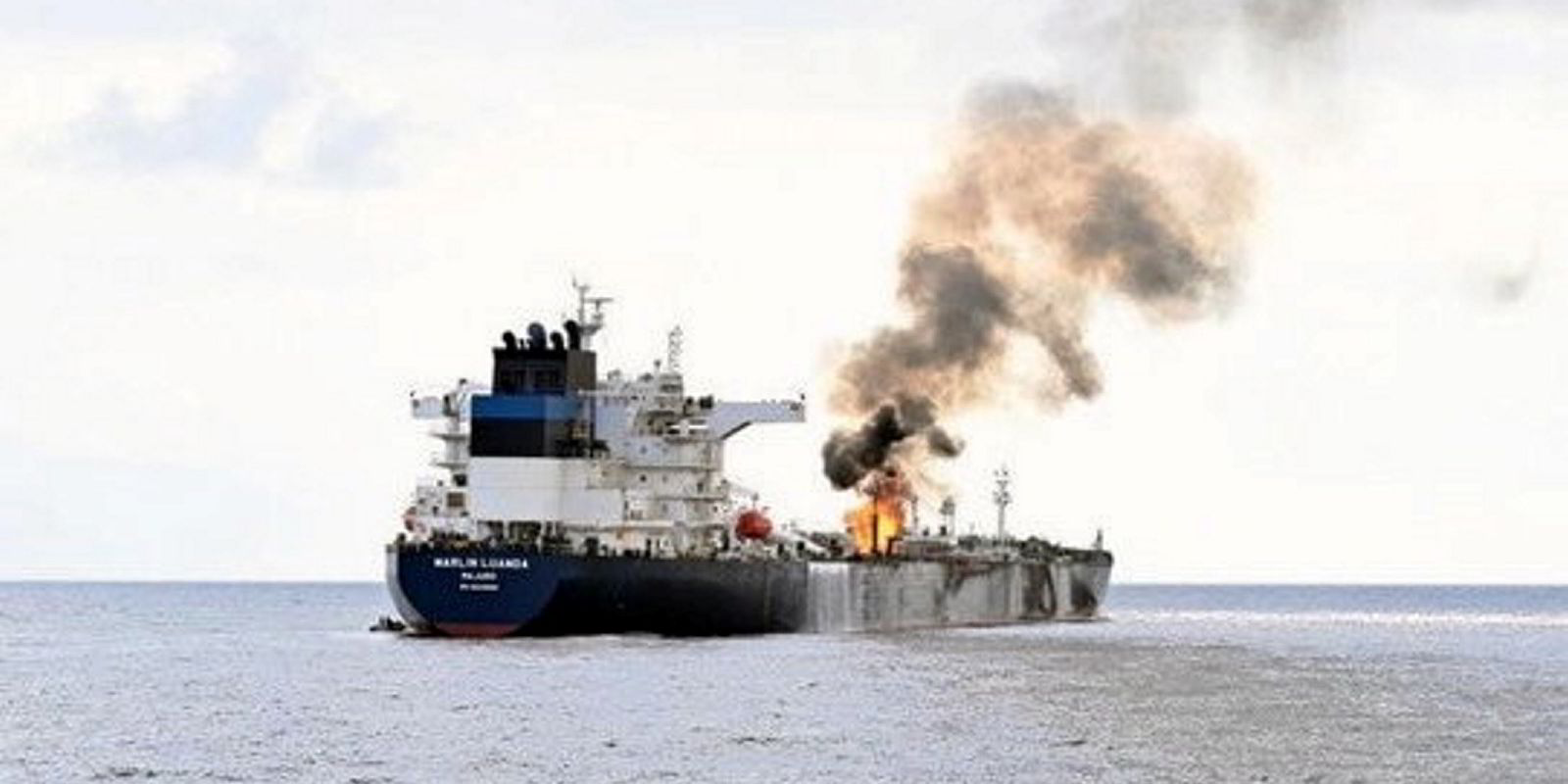
“We would like to recognise the exceptional dedication and bravery of the ship’s master and crew who managed to control the fire in highly difficult circumstances, as well as the essential assistance provided by Indian, United States and French Navy vessels to achieve this outcome.”
“No further vessels operating on behalf of Trafigura are currently transiting the Gulf of Aden and we continue to assess carefully the risks involved in any voyage, including in respect of security and safety of the crew, together with shipowners and customers.”
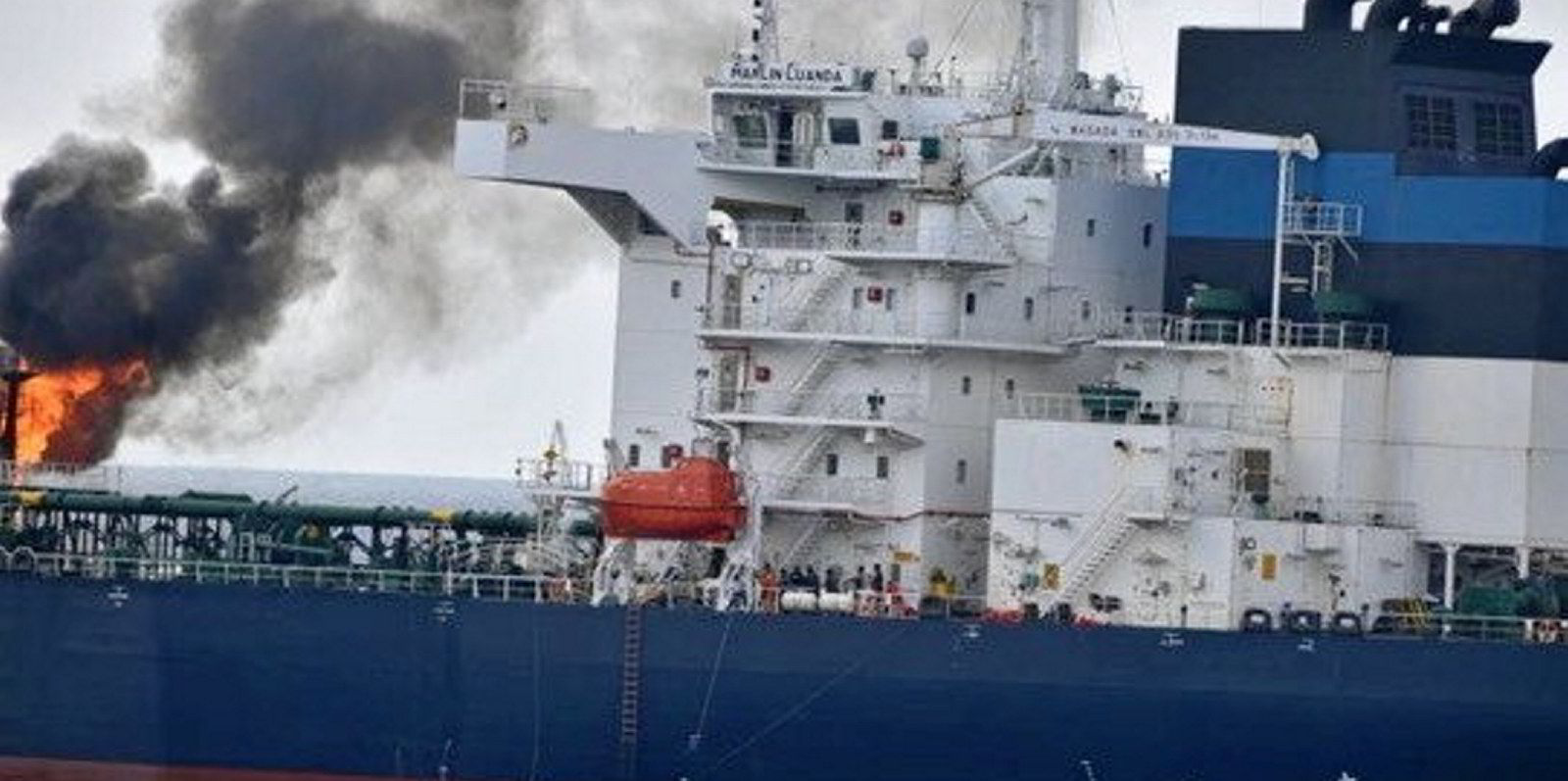
According to shipping databases, the vessel is owned by Oceonix Services, a company registered in the UK.
While Oceonix is not a global name, it has been described in TradeWinds and other industry press as a shipowning company connected to JP Morgan, the world’s largest bank.
A spokesperson for JP Morgan said the bank is not the owner of the Marlin Luanda and stressed Oceonix was not a subsidiary of the bank.
“The ship is owned by a group of institutional investors advised by JP Morgan,” the bank said in a statement provided to TradeWinds.
JP Morgan declined to comment further on the connection with Oceonix or provide additional details around the vessel’s ownership structure.
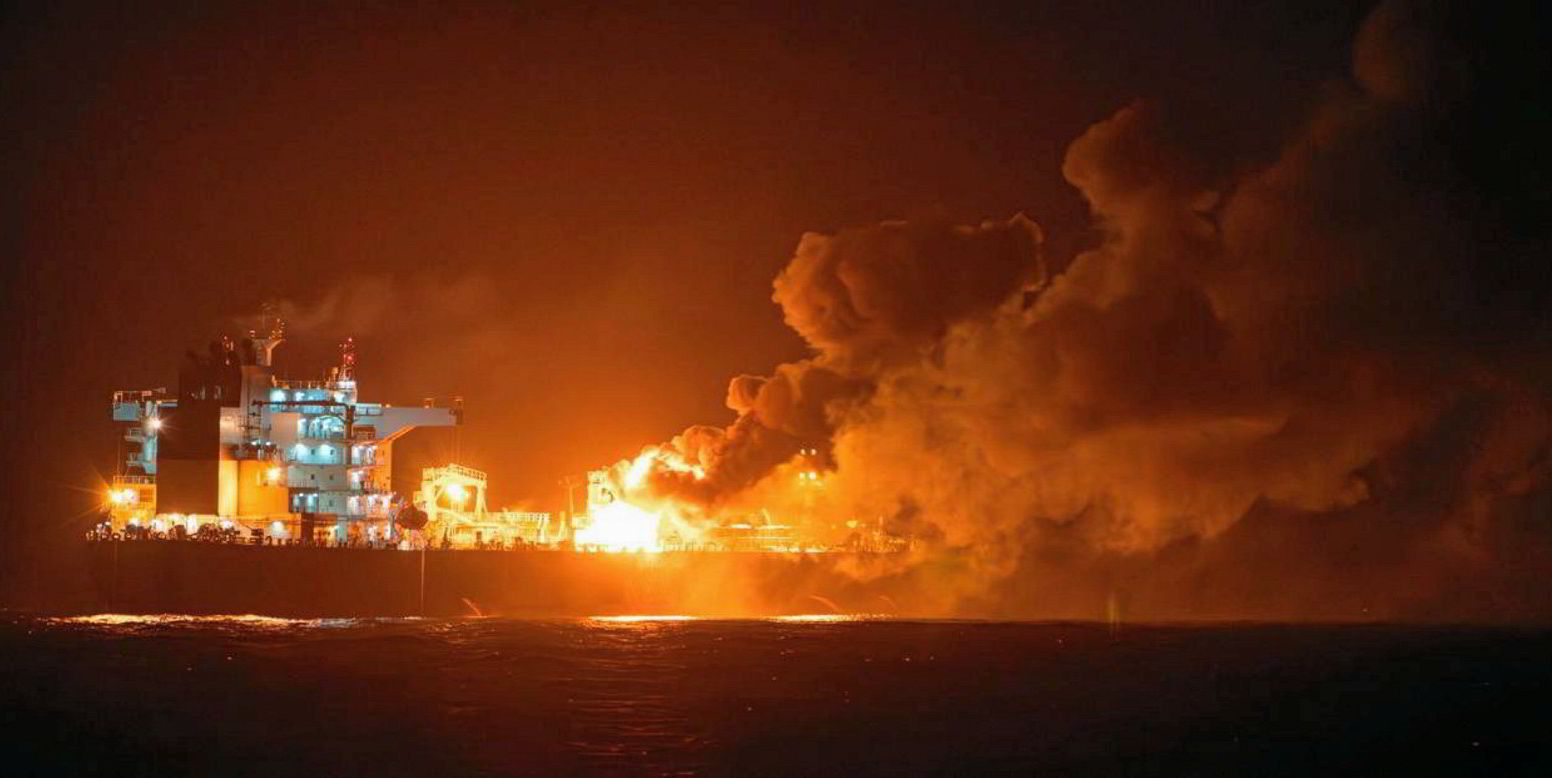
The Marlin Luanda incident has captured headlines around the world as the crew battle to control the fire on board the vessel.
The latest attack continues an escalation of Houthi hostilities, which has seen multiple US-owned vessels targeted and, in some cases, struck by missiles in the past weeks.
More than 30 ships have been attacked in the Red Sea and Gulf of Aden since hostilities began late last year.
Tension has intensified in the past few weeks with multiple attacks on US-owned and flagged ships in retaliation to airstrikes.
Shipowners have increasingly diverted vessels away from the trouble zone in an episode that is having a major impact on shipping and the wider world.
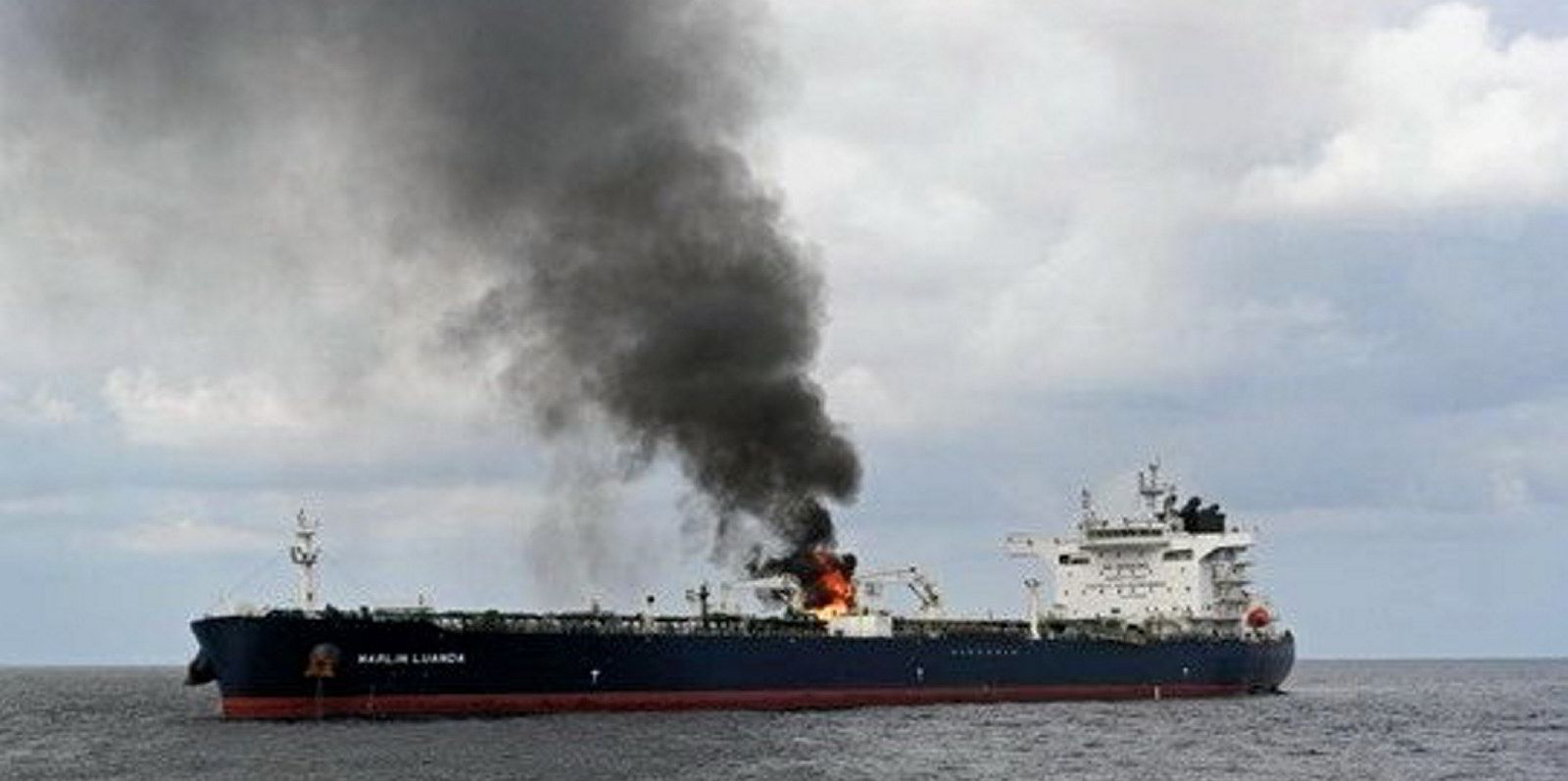
“The recent attacks by the Houthi rebels on merchant vessels have led to a significant increase in shipping freight rates,” Clarksons Securities said in an update on Friday.
“Historically, these freight rates have shown a strong correlation with Chinese producer prices. Furthermore, it is worth noting that Chinese producer prices have historically exhibited a relatively close correlation with US inflation.
“This raises concerns that the ongoing disruptions in the Red Sea could potentially have a detrimental impact on US inflation,” Clarksons Securities said.
